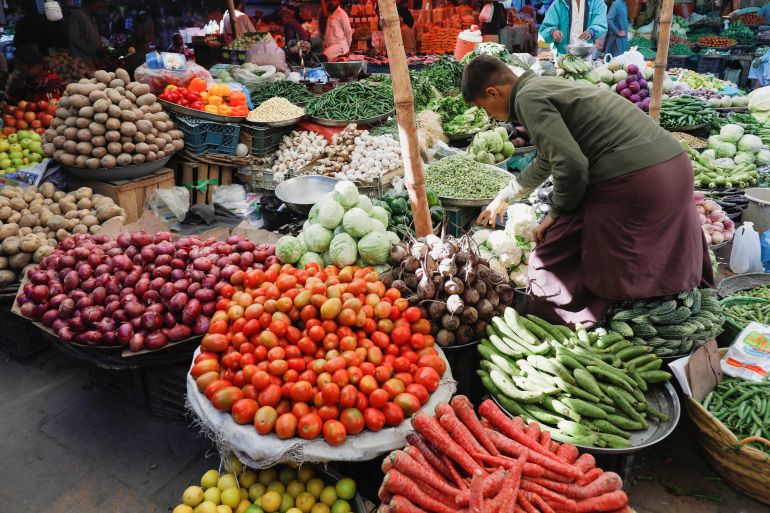Pakistan inflation hits record for second consecutive month
The country’s year-on-year inflation rises to record 37.97 percent as crucial IMF bailout talks remain in limbo.

Pakistan’s annual inflation rate has risen to 37.97 percent in May, the statistics bureau said, setting a national record for the second month in a row.
The bureau’s announcement on Thursday worsens the economic crisis in the South Asian country as crucial bailout talks with the International Monetary Fund (IMF) remain stalled and the risk of defaulting on debts looms.
Keep reading
list of 4 itemsIMF forecasts Pakistan’s economy to slump, inflation to rise
Questions raised over top leaders quitting Imran Khan’s party
Pakistani lawyer and activist Jibran Nasir abducted, wife says
The bureau in April said Pakistan’s consumer price index (CPI) was at 36.5 percent – already the highest in the country as well as the South Asian region. Sri Lanka, which is slowly recovering from a two-year economic crisis, posted annual inflation of 25.2 percent in May.
Pakistan’s month-on-month rise in May was 1.58 percent, the bureau said in a statement, adding vegetables, pulses, wheat, wheat flour, rice, eggs and chicken in food items and fuel and gas prices caused the increase.
“Everyone is worried,” 42-year-old Muhammad Safeer told the AFP news agency at an Islamabad market. “Where will we get the money from? Personal debt will only go up.”
Inflation has been on an upward trend since early this year after the government took painful measures as part of fiscal adjustments demanded by the IMF to unlock stalled funding.
The IMF demands include the withdrawal of subsidies, a hike in energy prices, a market-based exchange rate and new taxation to generate extra revenue in a supplementary budget.
Islamabad says it has met the demands, but the IMF has yet to release the $1.1bn funding stalled since November as part of the $6.5bn Extended Fund Facility agreed in 2019.
The funding is critical for Pakistan to unlock other bilateral and multilateral financing.
Prime Minister Shehbaz Sharif’s government is due to present its annual budget next week, and the nation has already downgraded its growth forecast for the year ending June 30 from 5 percent to 0.3 percent.
Years of financial mismanagement have pushed Pakistan’s economy to the limit, exacerbated by a global energy crisis and devastating floods that submerged a third of the country in 2022.
In addition to the grave economic woes, political chaos has further added to Pakistan’s troubles.
Former Prime Minister Imran Khan’s arrest in May at an Islamabad court sparked widespread and deadly protests. This was followed by a nationwide crackdown on his party, the Pakistan Tehreek-e-Insaf (PTI).
While Khan was freed on bail, thousands of his supporters were arrested or detained by authorities, with the government announcing that it was mulling banning the PTI ahead of national elections due by October.
Global rights bodies such as Human Rights Watch and Amnesty International have urged the Pakistani government to respect the rights of people arrested during the protests.